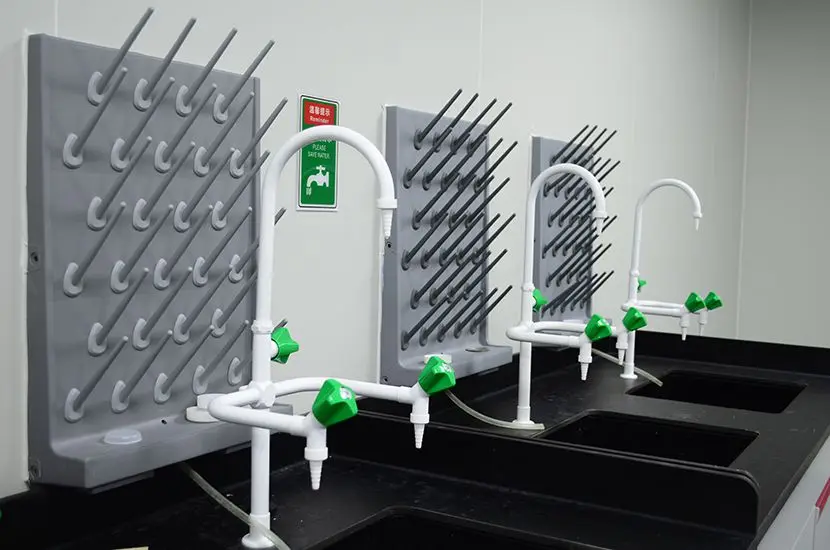
Detergent CE Certification and REACH Regulation
In the globalized market, product safety and compliance are increasingly gaining attention. For consumer products like detergents, CE certification is not only a compliance requirement but also a key factor in winning consumer trust. This article will explore the importance of CE certification for detergents, the certification process, and how to enhance product competitiveness through CE certification.

What is CE Certification?
CE certification (Conformité Européenne) is a mark that indicates a product meets the safety, health, environmental, and consumer protection requirements of the European EconoMIC Area (EEA). For detergents, CE certification demonstrates that the product complies with relevant European regULations and standards, ensuring that it poses no harm to consumer health or the environment during use.
Key Testing Standards for CE-Certified Detergents
EN 1276 - Testing Methods for Disinfectants and Antimicrobial Products
Overview: EN 1276 specifies the method for antimicrobial testing of surface disinfectants. This standard tests the effectiveness of detergents in killing bacteria, ensuring that the product can effectively disinfect under expected usage conditions.
Application: Suitable for household and industrial surface disinfectants, ensuring the product effectively combats common bacteria such as E. coli and Staphylococcus aureus.
EN 14476 - Disinfectant Testing for Viruses
Overview: EN 14476 outlines the method for testing the effectiveness of disinfectants against viruses. This standard ensures that detergents can effectively combat viruses, a crucial requirement, especially during pandemics.
Application: Applies to products used for disinfection and cleaning processes that require virus control.
EN 13697 - Antimicrobial Testing for Chemicals
Overview: EN 13697 assesses the antimicrobial properties of chemicals (including detergents) under non-rinsing conditions. This standard evaluates the ability of products to inhibit microorganisms in real-world usage environments.
Application: Suitable for all chemical products requiring verification of antimicrobial properties, ensuring they deliver the expected results in actual applications.
EN 1186 - Safety Testing for Food Contact Materials
Overview: The EN 1186 series defines the safety testing methods for food contact materials. For detergents with food contact functionality, it must be ensuRED that their ingredients do not migrate into food, safeguarding consumer health.
Application: Applicable to detergents that directly or indirectly contact food, ensuring they meet food safety standards.
EN 71 - Toy Safety Standards
Overview: Although EN 71 is primarily for toys, certain specialized detergents (e.g., those for cleaning toys) must comply with this standard to ensure safety for children.
Application: Applicable to detergents used for cleaning toys and children's products, ensuring that they do not pose any harm to children during use.
reach regulation - Registration, Evaluation, Authorization, and Restriction of Chemicals
Overview: While not an EN standard, REACH regulation requires manufacturers and importers to register chemicals and assess their impact on human health and the environment. Compliance with REACH is a prerequisite for CE certification.
Application: Applies to all chemicals, including detergents, ensuring they comply with European chemical regulations during production and sale.
ce certification process for Detergents
- Determine Applicable Standards: Manufacturers must first identify the CE certification standards applicable to their detergents. These standards cover chemical safety, environmental requirements, and other related regulations.
- Product Testing and Evaluation: Manufacturers must submit their products to a certification body for testing and evaluation. These tests will ensure that the product complies with relevant safety and performance standards.
- Prepare Technical Documentation: Based on the test results, manufacturers must prepare technical documentation, including product descriptions, test reports, and risk assessments. These documents will be part of the CE certification application.
- Apply for CE Certification: Submit all prepared materials to the certification body for CE certification application. The certification body will review the application materials and conduct necessary audits.
- Obtain CE Certification: Once the review is successful, the certification body will issue a ce certificate and allow the CE mark to be affixed to the product. At this point, the detergent can legally enter the European market.
CE certification is a vital tool for ensuring the safety, compliance, and competitiveness of detergents. By obtaining CE certification, manufacturers can not only access the European market but also enhance brand image, strengthen consumer trust, and ensure product quality and compliance. If you are seeking CE certification services, our professional team will provide comprehensive support, ensuring your product successfully passes certification and stands out in the global market.
For more detailed information and services regarding CE certification, please contact us. We are dedicated to offering expert consultation and support.
Email:hello@jjrlab.com
Write your message here and send it to us
 Cost of U.S. FDA CFR 21 177.2600 Test Report
Cost of U.S. FDA CFR 21 177.2600 Test Report
 How much does the IP44 Compliance Test cost
How much does the IP44 Compliance Test cost
 What is LFGB Test
What is LFGB Test
 What does LFGB certified mean?
What does LFGB certified mean?
 Weee authorised representative germany
Weee authorised representative germany
 Where to Apply for 2026 Air & Sea Transport Ce
Where to Apply for 2026 Air & Sea Transport Ce
 Guide to IEC Test Reports for Lighting Exports
Guide to IEC Test Reports for Lighting Exports
 IEC/EN 62471 and IEC/EN 62778 (Photobiological Saf
IEC/EN 62471 and IEC/EN 62778 (Photobiological Saf
Leave us a message
24-hour online customer service at any time to respond, so that you worry!




